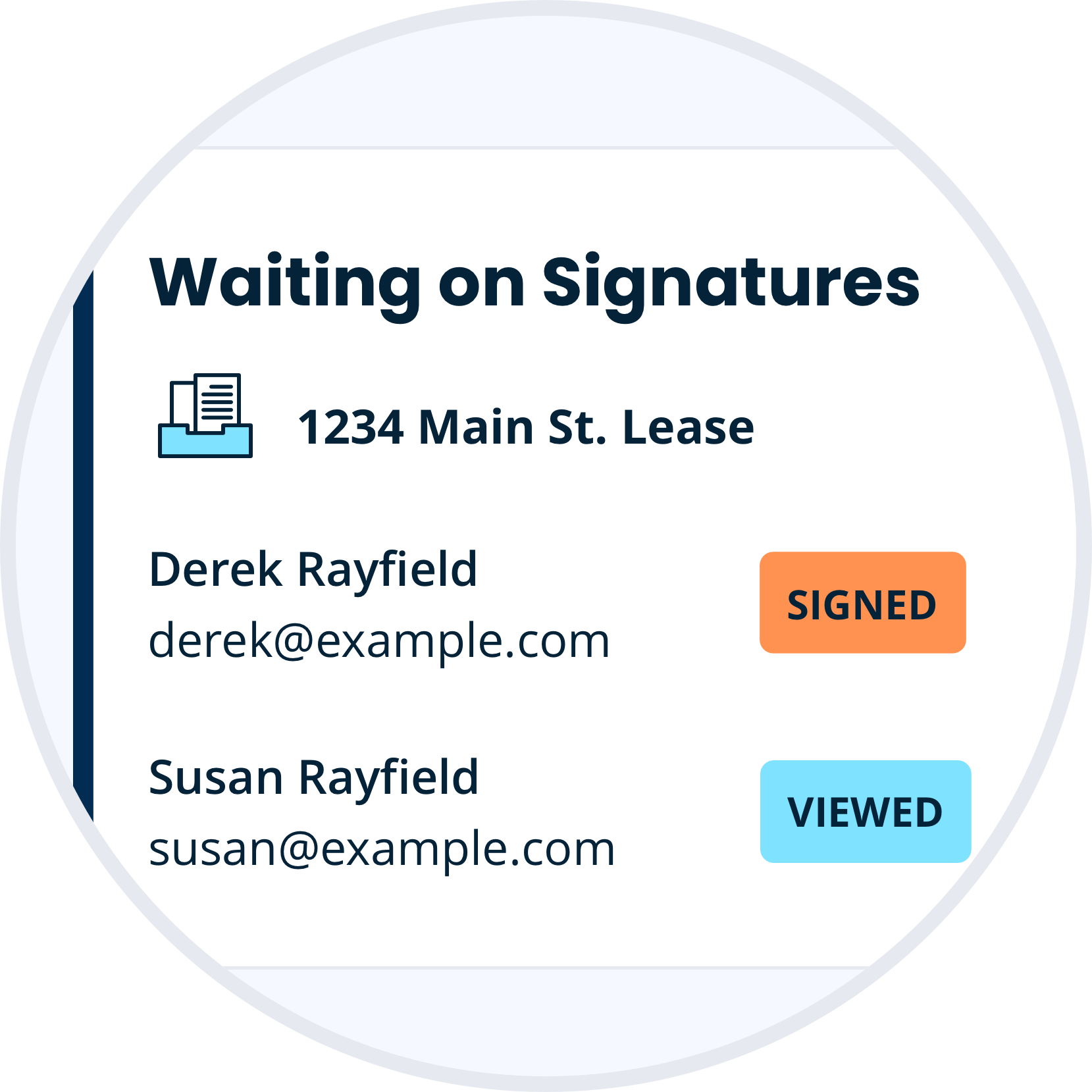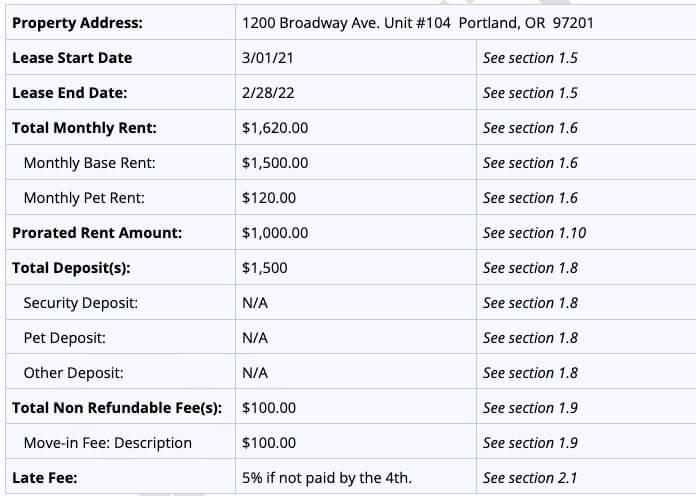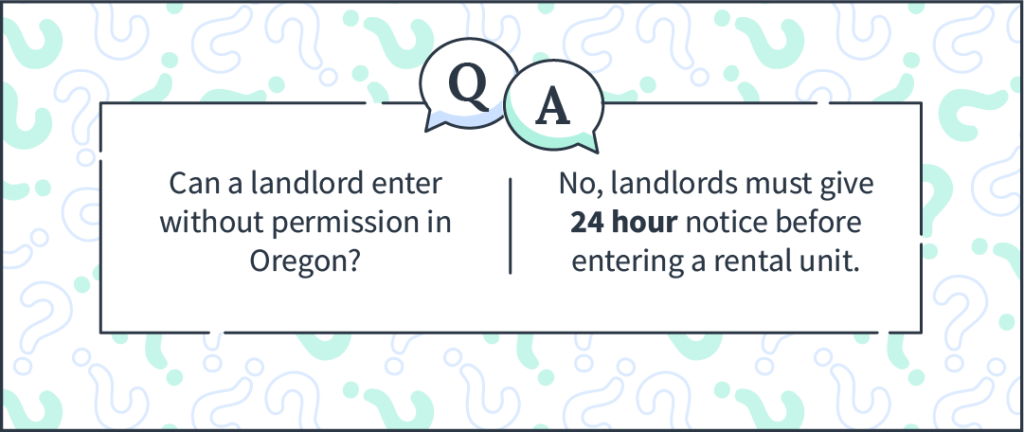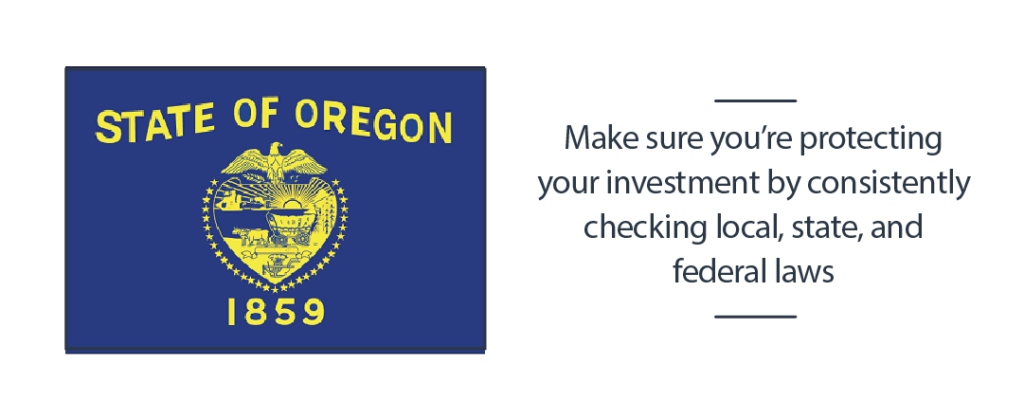Table of Contents
- Oregon Renters’ Rights and Landlord Responsibilities
- Oregon Landlord’s Rights and Tenant Responsibilities
- Application Fee
- Criminal Background Check
- Additional Oregon Laws
- Oregon Lease Agreement Sample
- Oregon Landlord-Tenant Law FAQ
- Due Diligence and Landlord-Tenant Laws in Oregon
- General Oregon Landlord-Tenant Law Resources
Oregon has it all – as one of the most geographically diverse states in the U.S. from the ocean, to mountains, to volcanoes, to the evergreen forests, the Beaver State is consistently growing. People are flocking to Oregon, not only for its beauty, but also for its thriving economy from things like tech and agriculture. Famous for its Pinot Noirs from the Willamette Valley, rich culture, and outdoor scenes, Oregon property investments see a rich return on their investment where rent prices are steadily climbing and the number of days properties are on the rental market is less than 15.
Laws that impact the rental market, landlords, and tenants are constantly being decided in states. Make sure you know what’s on your ballot – find Oregon voting information here.

Oregon Renters’ Rights and Landlord Responsibilities
- Give 24 hours notice before entering rental units
- Make repairs within one week of receiving notice
- Renters must be given 30 days to move out in month-to-month evictions
- Do not lock tenants out unless they are being violent to another
- Return security deposits within 31 days
When it comes to Oregon rental laws, there are a few specifics landlords need to know:
- Notice to Enter – Oregon landlords must give 24 hours notice before entering rental units as tenants have the right to privacy. However, in the case of an emergency, such as a fire, landlords may enter without advanced notice.
- Repairs – Oregon landlords must make necessary repairs within one week of receiving written notice from the tenant. Tenants should give notice of issues as soon as possible to ensure the problem doesn’t worsen and make the rental uninhabitable.
- Month-to-Month Evictions – Oregon renters must be given 30 days to move out when a month-to-month lease is ended or 90 days in the city of Portland. It’s important to know that even if the landlord wins an eviction lawsuit they cannot remove the tenant from a rental, law enforcement must.
- Lock Outs – Oregon landlords may not lock tenants out for any reason, the only exception being if one tenant is violent toward another tenant. Furthermore, it is unlawful for landlords to change the locks on the rental unit to evict the tenant.
- Security Deposits – Landlords must return deposits within 31 days of tenant move out – with deductions included. If the landlord fails to do so, tenants can sue and could be entitled to twice the amount that was wrongfully withheld.
- Rental Applications (Portland only) – The Fair Access in Renting (FAIR) law passed in 2019 instituted a low-barrier criteria of screening applicants that landlords can choose in order to avoid having to complete an individual assessment. These criteria include not denying tenant applicants for: misdemeanors that are more than 3 years old; convictions that are more than 7 years old; any credit score over 500; any past-due unpaid obligations reported by a consumer credit reporting agency of less than $1,000; and Chapter 13 Bankruptcy. Failure to comply with any of these regulations or complete an individual assessment when required would result in a $250 fine for the landlord.
Oregon Landlord’s Rights and Tenant Responsibilities
- Landlords may impose late fees four days after overdue rent
- Give 24-hour notice to move out for harmful or dangerous tenants
- Tenants cannot unreasonably bar landlords from entering the property
- Property Maintenance – Landlords have the right for their property to be returned in equally good condition, excepting normal wear and tear. Landlords are allowed to deduct portions of the security deposit for specific damages.
- Overdue Rent – If the rent is more than four days past the rent due date, landlords may impose a late charge or fee as long as it’s in the rental agreement. Landlords can also charge simple interest on an unpaid late charge.
- Harmful Behavior – If a tenant engages in harmful or dangerous behavior, only a 24-hour notice to move out is required. Don’t be afraid to notify law enforcement in dangerous situations.
- Reasonable Access – Tenants cannot unreasonably bar the landlord from entering the property, whether to make repairs or inspect the unit. Landlords have the right to inspect the rental property from time to time to ensure it’s in good condition.
Application Fee
Landlord can only charge an amount that they actually pay for the screening service. Landlords must refund that amount to an applicant if they charge, but do not pull a screening report.
Criminal Background Check
While screening tenants, criminal convictions and pending charges should be evaluated based on:
- Person’s crime
- Sex offense
- Crime involving fraud, identity theft, forgery or crime of a nature that would adversely affect property or the health, safety or right to Criminal Background Checks:
The City of Portland has stricter, tiered laws around the application/screening process along with criminal background check criteria. Learn more through the Portland Landlord-Tenant Law brochure.
Additional Oregon Laws
Rent Increases
Rent increases are capped at 10%, and you can only raise rent once per year.
Entry
You must provide your tenant(s) at least 24 hours advance notice before entering their abode, and you must share the time and identity of whoever will be entering the unit.
Repair/Maintenance
Repairs must be made within seven days for essential services and within 30 days for all other repairs.
Security Deposit
Security deposits must be returned within 31 days of move out with the itemization of any deductions.
Required Disclosures
Oregon landlords must disclose:
- Smoking policy
- Shared utilities
- For properties with four or fewer units, landlords must share any pending suit notification (foreclosure, etc.)
- For properties with five or more units within an urban growth area, you must provide annual notices to tenants regarding the separate location of recycling bins along with how to recycle
Portland landlords must:
- Disclose the name and address of the financial institution where the security deposit is held. Also, they must provide a receipt for each security deposit.
Build an Oregon lease agreement with all of the required disclosures in less than 15 minutes.
Oregon Lease Agreement Sample
There are three sections to a residential lease agreement. The first section outlines the custom details of the contract, such as who’s involved and for what address. Here’s an example Oregon lease agreement listing details found in Section 1:
Oregon Landlord-Tenant Law FAQ
Below are answers to some of the most commonly-asked questions when it comes to landlord-tenant laws in Oregon:
What Are the Eviction Laws in Oregon?
There are different legal requirements for types of leases such as month-to-month versus one-year, so it’s important to educate yourself beforehand. If landlords want to evict a tenant for unpaid rent or lease violations, they must give you written notice, and have to wait until the amount of time stated in the notice has passed before they can go to the courts. Tenants are entitled to a notice and hearing and landlords cannot lock you out or shut off your utilities during these processes.
How Much Notice Do You Have to Give a Tenant to Move Out in Oregon?
The length of notice depends on the specific scenario. For example, renters must be given 30 days to move-out in month-to-month evictions. If a tenant has lived in the rental for more than a year, you must give 60 days notice. The tenants themselves may also terminate the tenancy with a 30-day written notice. A week-to-week rental period requires a 10-day notice. See our resources below for more details.
What Defines a Tenant in Oregon?
OregonLaws.org states, “ ‘Tenant’ means a person, including a roomer, entitled under a rental agreement to occupy a dwelling unit to the exclusion of others, including a dwelling unit owned, operated or controlled by a public housing authority.”
Can a Landlord Enter Without Permission in Oregon?
Landlords must give 24 hour notice before entering the rental units. The exception is in the case of an emergency, such as a fire, landlords may enter without an advanced notice.
Is Oregon a Landlord-Friendly State?
Oregon can be considered a landlord-friendly state as it doesn’t require landlords to get a license before renting out their properties (with the exception of Portland). Furthermore, there is not a limit on how much a landlord can charge for a security deposit, and landlords can charge non-refundable application fees. For full details on landlord-tenant laws, please use the resources below.
Due Diligence and Landlord-Tenant Laws in Oregon
TurboTenant has utilized many municipal sources along with official state statutes in order to compile this information to the best of our ability. However, local laws are always in flux and landlords and tenants alike should be sure to do their due diligence and consult legal help when it’s needed. We hope the following list can serve as a valuable resource and allow you to succeed as a landlord or tenant in Oregon. Be sure to take proper precautions when it comes to finding the top candidates for your unit by utilizing our online rental application and tenant screening services.
Disclaimer: TurboTenant, Inc does not provide legal advice. This material has been prepared for informational purposes only. All users are advised to check all applicable local, state, and federal laws and consult legal counsel should questions arise.

Unlimited Everything.
Create a single Oregon lease agreement, or subscribe and receive unlimited lease agreements, landlord forms pack, and e-signs for a simple annual fee. Be confident with all the legal forms and tools you need as a professional landlord.
Discover Our Unlimited PlanGeneral Oregon Landlord-Tenant Law Resources
- Chapter 90 — Residential Landlord and Tenant Law – Oregon State Legislature
- Chapter 91 — Tenancy Law– Oregon State Legislature
- Landlord and Tenant Law – Oregon State Bar
Oregon Fair Housing Resources
Other Oregon State Resources
Oregon Associations
Federal Fair Housing Resources
- Federal Fair Housing Act
- United States Department of Housing and Urban Development (HUD)
- Civil Rights Act of 1968 (Wikipedia)
Oregon City-Specific Housing Resources
Portland
- Portland Landlord Training Manual
- Fair Housing | Portland.gov
- Fair Housing Advocacy Committee | Portland.gov
- A Guide for Landlords and Tenants – Multnomah County
- Rental Housing– Multnomah County
- Portland Metropolitan Association of Realtors®
Salem
Eugene
- Rental Housing Code – City of Eugene
- Rental Property Program – City of Eugene
- Eugene’s Fair Housing Plan – City of Eugene
- Eugene Association of REALTORS®
Gresham
- Rental Inspection Resources for Property Owners and Managers – City of Gresham
- Rental Inspection Resources for Tenants – City of Gresham
- A Guide for Landlords and Tenants – Multnomah County
- Rental Housing– Multnomah County
- East Metro Association of REALTORS®
Hillsboro
Beaverton
Bend
Medford
- Landlord/Tenant Resources – City of Ashland, Oregon
- Rental Registration – City of Medford
- Register your Residential Rental Property City of Medford
- Rogue Valley Association of REALTORS®
Springfield
Corvallis
Albany
Tigard








